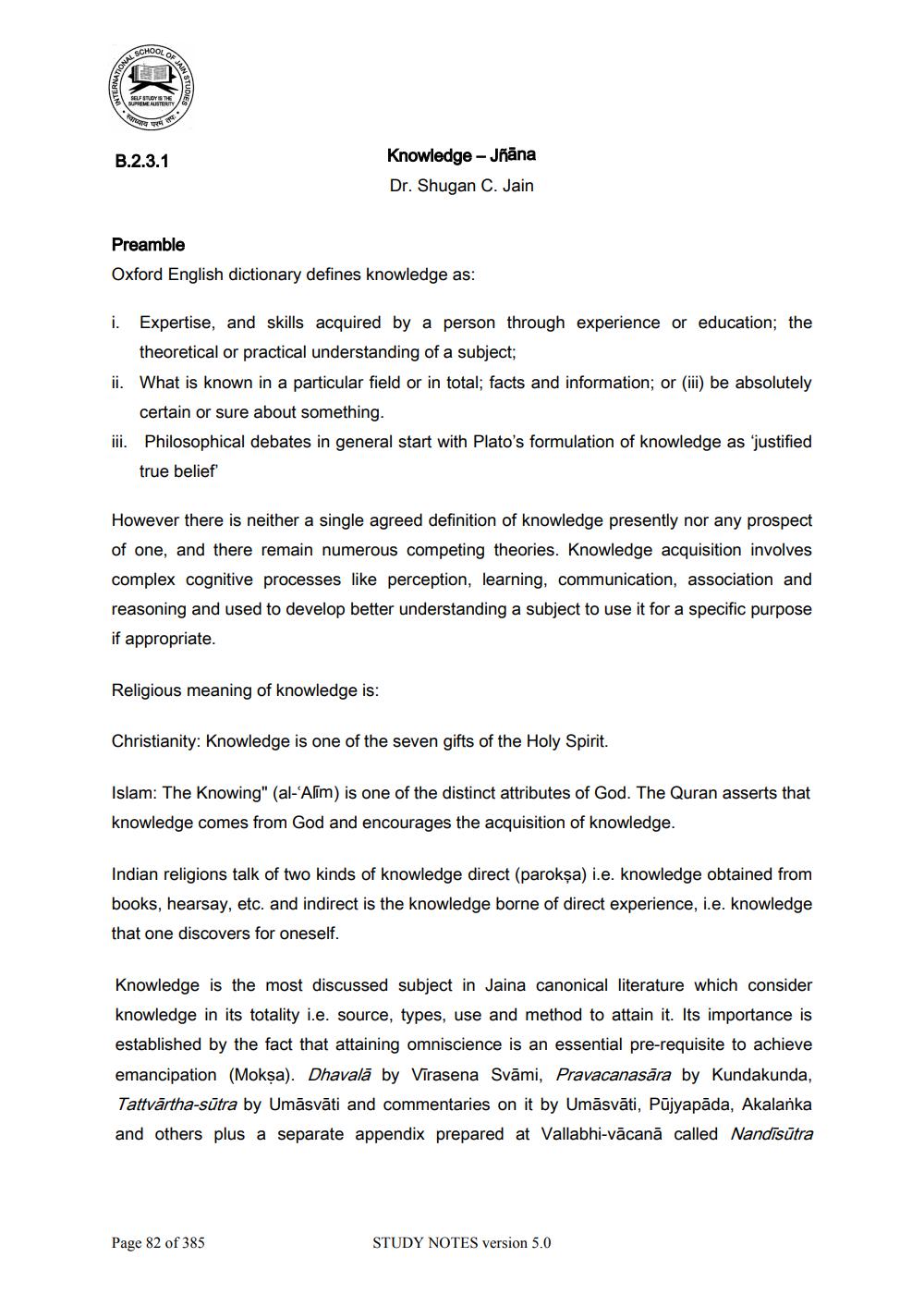________________
INTERN
SCHOOL OF
TIONAL
पाध्याय परम
B.2.3.1
JAIN STUDIES
Preamble
Oxford English dictionary defines knowledge as:
Knowledge-Jana
Dr. Shugan C. Jain
i. Expertise, and skills acquired by a person through experience or education; the theoretical or practical understanding of a subject;
ii. What is known in a particular field or in total; facts and information; or (iii) be absolutely certain or sure about something.
iii. Philosophical debates in general start with Plato's formulation of knowledge as 'justified true belief'
However there is neither a single agreed definition of knowledge presently nor any prospect of one, and there remain numerous competing theories. Knowledge acquisition involves complex cognitive processes like perception, learning, communication, association and reasoning and used to develop better understanding a subject to use it for a specific purpose if appropriate.
Religious meaning of knowledge is:
Christianity: Knowledge is one of the seven gifts of the Holy Spirit.
Islam: The Knowing" (al-'Alim) is one of the distinct attributes of God. The Quran asserts that knowledge comes from God and encourages the acquisition of knowledge.
Indian religions talk of two kinds of knowledge direct (parokşa) i.e. knowledge obtained from books, hearsay, etc. and indirect is the knowledge borne of direct experience, i.e. knowledge that one discovers for oneself.
Knowledge is the most discussed subject in Jaina canonical literature which consider knowledge in its totality i.e. source, types, use and method to attain it. Its importance is established by the fact that attaining omniscience is an essential pre-requisite to achieve emancipation (Mokṣa). Dhavala by Virasena Svāmi, Pravacanasāra by Kundakunda, Tattvärtha-sūtra by Umāsvāti and commentaries on it by Umāsvāti, Pujyapāda, Akalanka and others plus a separate appendix prepared at Vallabhi-vācană called Nandisūtra
Page 82 of 385
STUDY NOTES version 5.0




